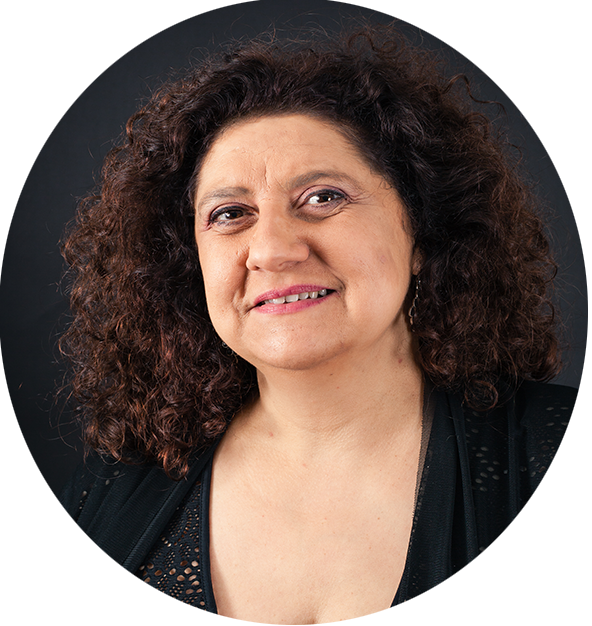Explore KEYTRUDA® patient profiles
- Julie † A patient with high-risk, early-stage, triple-negative breast cancer
- Sarah † A patient with high-risk, early-stage, triple-negative breast cancer
- Justine † A patient with high-risk, early-stage, triple-negative breast cancer
Explore efficacy and safety profile results for KEYTRUDA® for the neoadjuvant and adjuvant treatment of adults with high-risk, early-stage TNBC
Discover results from the KEYNOTE-522 trialExplore efficacy and safety profile results for KEYTRUDA® for the neoadjuvant and adjuvant treatment of adults with high-risk, early-stage TNBC
Discover results from the KEYNOTE-522 trialExplore efficacy and safety profile results for KEYTRUDA® for the neoadjuvant and adjuvant treatment of adults with high-risk, early-stage TNBC
Discover results from the KEYNOTE-522 trial- Ariel † A patient with recurrent unresectable metastatic TNBC
- Christine † A patient with metastatic TNBC
- Michelle † A patient with locally recurrent TNBC
Explore efficacy and safety profile results for KEYTRUDA® for the treatment of adults with locally recurrent unresectable or metastatic TNBC
Discover results from the KEYNOTE-355 trialExplore efficacy and safety profile results for KEYTRUDA® for the treatment of adults with locally recurrent unresectable or metastatic TNBC
Discover results from the KEYNOTE-355 trialExplore efficacy and safety profile results for KEYTRUDA® for the treatment of adults with locally recurrent unresectable or metastatic TNBC
Discover results from the KEYNOTE-355 trial†Fictitious patient profile. May not be representative of all patients.
AJCC=American Joint Committee on Cancer; BMI=body mass index; CT=computed tomography; ER=estrogen receptor; DCIS=ductal carcinoma in situ; ECOG PS=Eastern Cooperative Oncology Group performance status; HER2=human epidermal growth factor receptor 2; IHC=immunohistochemistry; PR=progesterone receptor; PET=positron emission tomography; TNBC=triple-negative breast cancer.
References:
1. KEYTRUDA® Product Monograph. Merck Canada Inc. February 6, 2024.
2. American Joint Committee on Cancer (AJCC). Cancer Staging Manual 8th edition. doi:10.1007/978-3-319-40618-3.
3. Dent R, et al. Pattern of metastatic spread in triple-negative breast cancer. Breast Cancer Res Treat. 2009;115:423–428. doi:10.1007/s10549-008-0086-2.
4. Cortes J, et al. Pembrolizumab plus chemotherapy versus placebo plus chemotherapy for previously untreated locally recurrent inoperable or metastatic triple-negative breast cancer (KEYNOTE-355): a randomised, placebo-controlled, double-blind, phase 3 clinical trial. Lancet. 2020;396:1817–28
CA-OBR-00005







